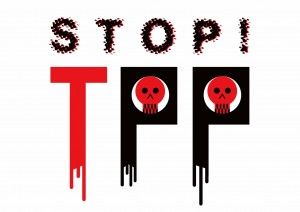(10 am. – promoted by ek hornbeck)
 The Electronic Frontier Foundation reports that negotiations for the Trans-Pacific Partnership continued under wraps in Singapore earlier this month.
The Electronic Frontier Foundation reports that negotiations for the Trans-Pacific Partnership continued under wraps in Singapore earlier this month.
The 16th round of negotiations over the Trans-Pacific Partnership agreement (TPP) began in Singapore today, as trade delegates and private stakeholders from 11 participating countries gather to discuss this the contours of Pacific trade. EFF and many others are deeply concerned about TPP, because it appears to contain an intellectual property (IP) chapter that would ratchet up IP enforcement at the expense of digital rights. The TPP could turn Internet Service Providers into copyright cops, prompt ever-higher criminal and civil penalties for sharing content, and expand protections for Digital Rights Management. The Office of the US Trade Representative (USTR) has announced that they plan to complete the TPP by the fall of this year.
We say “appears to contain” because the negotiations have been carried out in secret: our understanding of the U.S. proposal is based primarily on leaked texts from February 2011. However, there have been some additional leaks, like those following the USTR announcement that the TPP would include exceptions and limitations to copyright. Despite the USTR’s effort to suggest that introducing fair use into the TPP was its idea, the leaked negotiating text made it clear that the U.S. was likely pressured into agreeing to exceptions and limitations as a concession. The leak also showed that the U.S. and Australia opposed any fair use that would extend to the “digital environment.” Thus, it appears the USTR continues to lobby for ever more stringent international IP standards without much regard for the collateral damage to the public interest.
The AFL-CIO is also concerned that TPP would have a negative impact on basic labor rights, including free association and collective bargaining:
For example, regarding labor rights, the “Outlines of the Trans-Pacific Partnership Agreement” released in November 2011 reads: “TPP (Trans-Pacific FTA) countries are discussing elements for a labor chapter that include commitments on labor rights protection and mechanisms to ensure cooperation, coordination, and dialogue on labor issues of mutual concern,” but fails to mention core labor standards (as determined by the International Labor Organization) or even whether the labor provisions in the final agreement will be enforceable.
Margaret Flowers, a congressional fellow with Physicians for a National Health Program and a pediatrician based in Baltimore and Kevin Zeese, activist lawyer and co-director of It’s Our Economy, discussed the agreements impact on labor, environmental, and internet rights with Paul Jay of the Real News Network.
TransPacific Partnership Will Undermine Democracy, Empower Transnational Corporations
by Margaret Flowers and Kevin Zeese, Truthout | News Analysis
On critical issues, the massive Trans-Pacific Partnership (TPP) being negotiated in secret by the Obama administration will undermine democracy in the United States and around the world and further empower transnational corporations. It will circumvent protections for health care, wages, labor rights, consumers’ rights and the environment, and decrease regulation of big finance and risky investment practices.
The only way this treaty, which will be very unpopular with the American people once they are aware of it, can be approved is if the Obama administration avoids the democratic process by using an authority known as “Fast Track,” which limits the constitutional checks and balances of Congress.
If the TPP is approved, the sovereignty of the United States and other member nations will be dissipated by trade tribunals that favor corporate power and force national laws to be subservient to corporate interests.

1 comments
Author